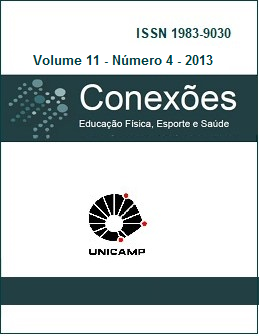Abstract
This essay aims to discuss aspects of "urbanity" and some points regarding the city's
intellect. Considering that the city is made by / for the very people who inhabit it, and
its (re) construction is synonymous with reconstruction of the subject, this text will deal
with the dialectical relationship between individual and city-intelligence. Such
processes occur because of trade and liminaridades everyday, and the interaction of man with all that comprise the city. Before thinking about how man interacts with the city,
we raise the question of intelligence as part of the dialogue-person town. Sometimes,
the city eventually develop certain mechanisms of mental organization, which will help
you cope with the wave of stimuli coming from outside. In these mechanisms, Simmel
gives the name of blasé attitude. The blasé is part of what we call "objectivity of urban
life," and contributes to the occurrence of the functions of phatic communication. Phatic
functions, in turn, are defined as an attempt to maintain communication for the purposes
of socializing, but in a way impersonal. Several authors were about the blasé about the
objectivity of urban life, about the decline of the bonding and kin, so that even touching
difetentes points somehow - viewed from a panoptic - the thought: Park, Gadamer,
Simmel, Certau, Mayol, Magnani and Wirth, are (consiliently or dissonantly) related.
References
MAGNANI, J. G. C. A antropologia urbana e os desafios da metrópole. São Paulo, v. 15, n. 1, abr. 2003 Disponível em: http://www.scielo.br/scielo.0php?script=sci_arttext&pid=S0103-20702003000100005&lng=en&nrm=iso. Acesso em: 02 jan. 2013.
VIVEIROS DE CASTRO, E. V. Os pronomes cosmológicos e o perspectivismo ameríndio. Mana, Rio de Janeiro, v. 2, n. 2, p. 115-144, 1996.
LEVI-STRAUSS, C. Race et histoire. In: LEVI-STRAUSS, C. Anthropologie structurale deux. Paris: Lon. 1973 [1952]. p. 377-422.
PARK, R. E. A cidade: sugestões para a investigação do comportamento humano no meio urbano. In: Velho, O. G. (Org.). Fenômeno urbano. Rio de Janeiro: Zahar, 1976.
HARVEY, D. Os espaços de utopia. In: HARVEY, D. Espaços de esperança. São Paulo: Loyola, 2004.
AGIER, M. Antropologia da cidade. São Paulo: Terceiro Nome, 2011.
CERTEAU, M. de. A invenção do cotidiano: artes de fazer. Petrópolis: Vozes, 1996.
VELHO, O. G. Unidade e fragmentação em sociedades complexas. In: Velho, O. G. Projeto metamorfose: antropologia das sociedades complexas. Rio de Janeiro: Zahar, 1994.
SIMMEL, G. A Metrópole e a Vida Mental. In: O fenómeno urbano. VELHO, O. G. (Org.). 4. ed. Rio de Janeiro: Zahar, 1979.
BAUMAN, Z. O mal-estar da pós-modernidade. Rio de Janeiro: Zahar, 1998.
WIRTH, L. O urbanismo como modo de vida. In: VELHO, O. G. (Org.). Fenômeno urbano. Rio de Janeiro: Zahar, 1973
WHYTE, W. F. Sociedade de esquina: a estrutura social de uma área pobre e degradada. Rio de Janeiro: Zahar, 2005.
GADAMER. H. G. O caráter oculto da saúde. Petrópolis: Vozes, 2006.
MAYOL, P. O bairro. In: CERTEAU, M. A invenção do cotidiano. Rio de Janeiro: Vozes, 1996
The Conexões: Educação Física, Esporte e Saúde Journal uses the license of Creative Commons (CC), thus preserving the integrity of articles in an open access environment.


